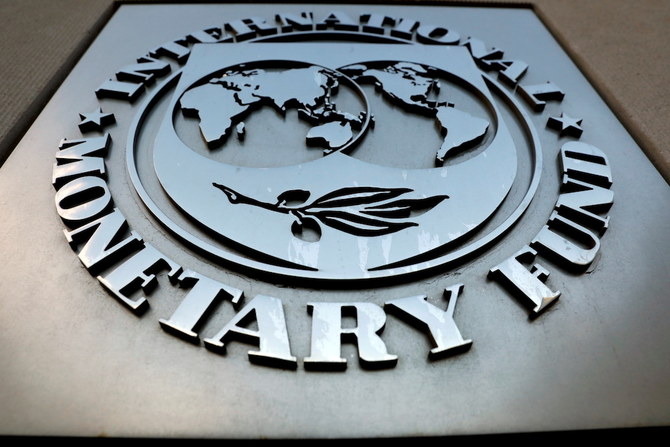Hafed Al-Ghwell
In a move that was less of a surprise and more a reflection of just how far gone Tunisia now is, President Kais Saied this month rejected the idea of implementing economic reforms required by the International Monetary Fund as part of a $1.9 billion bailout package agreed in October last year.
Tunisia, a North African country that emerged from the Arab Spring as a beacon of democracy, has been grappling with economic hardships and political instability in recent years.
Citing concerns over subsidy cuts and potential unrest, Saied rejected the terms of the bailout package. His administration also balked at cutting public sector wages, even though Tunisia has one of the biggest public wage bills in the world. Meanwhile, record high inflation has left the Tunisian government highly sensitive about making any decisions that might hurt the average citizen’s rapidly decreasing purchasing power.
Without the IMF’s help, however, Tunisia faces significant sociopolitical and economic consequences that are not exactly unknown, and so Saied’s decision has far-reaching implications for the nation’s sociopolitical and economic landscape.
Firstly, the country faces a balance of payments crisis without any readily available financial support. Its fiscal deficit has been growing, with public debt now exceeding 90 percent of the gross domestic product. An already precarious economic situation could be exacerbated, as long as combative politics continues to weigh heavier in the government’s decision-making processes than the more evident needs of average Tunisians.
Ironically, in an attempt to ease pressure on the domestic front, Saied’s government continues to trudge along through a disaster of its own making, neither keen to accept much-needed assistance nor in a hurry to find alternative financing. Nonetheless, Tunis will not be able to dodge the inevitable, because the only way out of this quagmire is to resort to increased borrowing, even if it places further strain on already high debt levels.
Secondly, inflation has been a significant issue for Tunisia, now edging past 10 percent. Without the IMF’s support, the country might struggle to implement the necessary fiscal and monetary policies to curb inflation, which would lead to rapidly rising prices for essential goods and services. This would disproportionately affect the most vulnerable people who are already struggling with high unemployment, stagnant wage growth, and worsening poverty levels.
Paradoxically, if Tunisia is to increase social protections for its most vulnerable people, it will have to rely on the IMF’s help, which entails enacting austerity measures to reduce the fiscal deficit. However, cutting public spending will imperil public sector wages, social safety nets, and other interventions designed to reduce the impact on the swelling ranks of Tunisia’s struggling lower and middle classes.
Thirdly, the deal with the IMF would not only help Tunisia avoid defaulting on debt, it would also enable the embattled country to access up to $5 billion in external funding, mostly from creditors in Europe and the Arabian Gulf, equivalent to about 65 percent of 2023 government-funding needs, or 17 percent of the gross domestic product. The remaining financing could be provided mostly by local banks but the mechanics of how they can do this without putting significant pressure on their own liquidity remains unclear.
This only strengthens the case for accepting the IMF’s terms, since doing so would help restore some investor confidence in the country, which would be key to attracting voluminous foreign direct investment to help accelerate economic growth.
Foreign direct investment inflows have been crucial to the nation’s development, particularly in sectors such as tourism and manufacturing. Any further declines would likely result in reduced job opportunities, complicating economic diversification efforts and long-term interventions to enhance Tunisia’s resilience to external shocks – for example, the ongoing adverse effects of the war in Ukraine on food inflation.
Fourthly, tensions arising from a three-way standoff between the Saied regime, the labor unions, and the political opposition will only rise, sparking even more sociopolitical crises and governance deficiencies in a landscape that has been marked by intense fragmentation and instability since 2011.
Tunisia’s post-Arab Spring era has experienced multiple changes in government and lack of consensus on key policy issues; the puzzling decision to reject a bailout could further polarize the country, hindering the government’s ability to implement much-needed reforms.
Moreover, Saied himself has acknowledged that subsidy cuts could lead to unrest, and when this is coupled with the potential for reduced social programs, mass civil sector layoffs and rising prices, the risk of violent protests will only increase.
Tunisia has experienced waves of social unrest in recent years, particularly in 2018 when demonstrations erupted in response to austerity measures and increased living costs. Thus, the memories in Carthage Palace are somewhat fresh which likely explains the costly hesitancy.
Unfortunately, without a viable alternative, the Saied regime risks inflaming tensions among Tunisian youths who constitute a significant segment of the country’s population. Chronic unemployment among young people has been a persistent issue, one that Saied’s “back to basics” brand of populism sought to tackle, yet has consistently failed. Now, nearly one in three Tunisian youths are out of work and, with inevitable austerity measures looming, the bleak economic prospects will only continue to agitate a promising demographic that is key to unleashing the country’s so-far squandered potential.
Tunisia’s maladies are eerily reminiscent of the prolonged periods of economic hardship, social unrest, and political instability faced by Argentina and Greece. Those countries ultimately faced years of austerity measures and reduced social services, which led to widespread public protests and political upheaval.
Therefore Saied’s decision to reject IMF help is more than just confounding — it is reckless.
The regime in Tunis has not put forward any alternative plan for reducing a ballooning debt-to-GDP ratio, which is compounding fiscal pressures and slowly forcing the Tunisian government into a corner.
For instance, without urgent assistance Tunisia will probably fail to make some foreign loan repayments this year totaling about $2 billion, including a €500 million ($554 million) Eurobond maturing in October.
Meanwhile, Tunisia’s business community is increasingly frustrated with Saied for his seemingly erratic decision-making, so it seems likely that protests will erupt regardless of what happens with the IMF deal.
The short-term consequences of Saied’s expected, yet nonetheless bizarre, decision are already apparent; the longer-term consequences, however, could be more severe and extend beyond the nation’s borders, potentially plunging another North African country into chaos.
Time is quickly running out for Tunis to implement necessary reforms and prolonging the inevitable will only compromise Tunisia’s stability, ultimately hindering its recovery, development, and prosperity.







